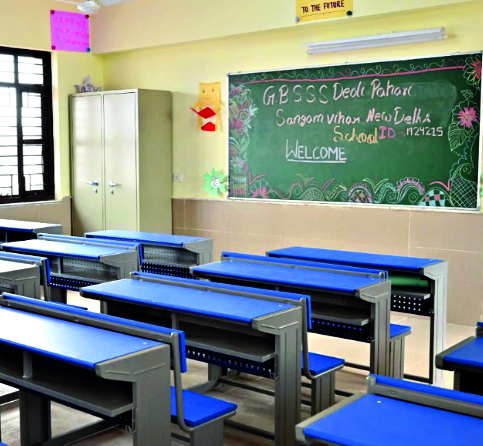Delhi govt to bring facial recognition technology in schools

New Delhi: In a strategic move aimed at improving student attendance in nation capital’s schools, the Delhi government is exploring the introduction of facial recognition technology. This proposal emerged from a high-level meeting held on July 25, where officials discussed plans to modernise educational operations and increase transparency in school management.
With current student attendance rates hovering between 65 per cent and 70 per cent, there is a clear need for improvement.
An official from Education department underscored the importance of tackling this issue, suggesting that automating attendance through facial recognition could significantly boost accuracy and operational efficiency.
“This technology would also enable the provision of monthly attendance updates to parents and support increased student engagement through regular assessments,” she stated.
Despite the promise of technological advancement, the plan has faced scrutiny from within the educational community.
Critics argue that addressing attendance problems solely through administrative tools like facial recognition overlooks deeper pedagogical issues.
Educators suggest that simply installing technology or sending attendance updates to parents may not resolve the underlying reasons for low student attendance, particularly for those from disadvantaged backgrounds.
A more supportive approach is proposed by some educators, who believe that creating a nurturing and engaging school environment could be more effective.
They advocate for initiatives that involve educating parents about the value of education and fostering a welcoming atmosphere in schools to encourage regular attendance.
In preparation for a potential broader implementation, the government plans to conduct pilot programmes in a select number of schools. This phased approach aims to assess the technology’s effectiveness and address any challenges before a full-scale rollout.
Additionally, the meeting addressed the issue of provisional admissions, directing schools to enroll students even if they do not have complete documentation.
“This policy aims to eliminate administrative obstacles that might prevent students from accessing education,” an official explained.
The meeting also highlighted the need for precise and timely reporting in the PM POSHAN scheme, which provides meals to students. Accurate data submission is crucial for evaluating the effectiveness of the programme and ensuring its success.



